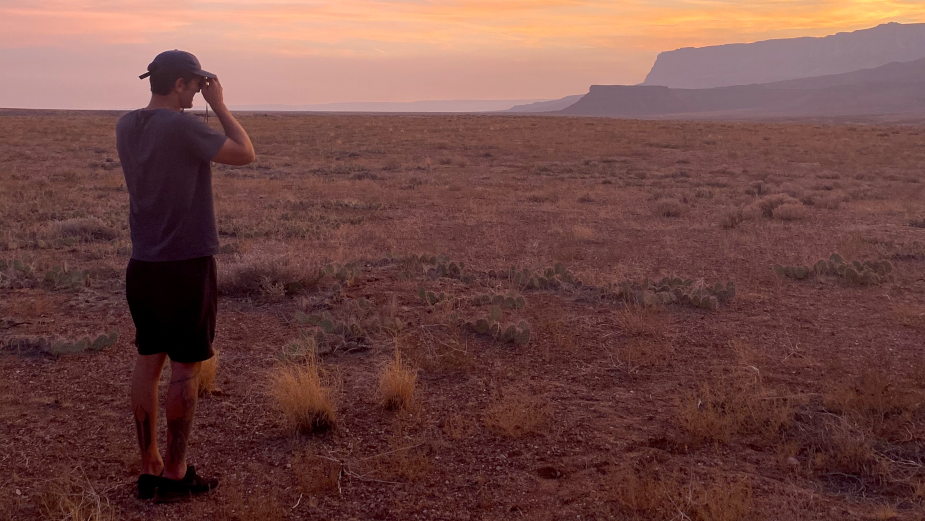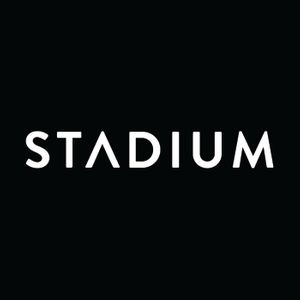
The Directors: Ross Haines

Award-winning visual storyteller, Ross Haines is known for pairing the human experience with rich cinematic images.
Growing up in California, his formative years were largely spent in the mountains or the ocean. Setting out to be a marine biologist and months away from a degree, he rather unexpectedly discovered filmmaking, became hopelessly enchanted, and never looked back. Living in Hawaii, New York, and traveling the globe all helped fuel an insatiable curiosity and appreciation for our shared human experience and inevitably led to a body of work featuring colourful characters - from underdogs to renowned artists, thinkers, elite athletes, activists and boundary-pushers of every sort.
LBB> What elements of a script sets one apart from the other and what sort of scripts get you excited to shoot them?
Ross> Great question. For me there are a variety of things that can set a script apart.
For starters, I love when scripts say things like, “most people wouldn’t expect this”, or “we want to show them something different.” In other words, a script where the creatives are hungry for a new twist or perspective. Perhaps, it’s an unlikely character, a brand new product or some combination of things that’s going to grab people.
It’s great when the script has some heart, a bit of human gravity. Work that requires a some level of emotional nuance and attention to detail gets me creatively focused.
As far as the script elements, naturally my eye is going to jump to imagery. If there’s strong visuals or references from other films, spots, or photographers that I hold in high esteem it reinforces that we are speaking the same stylistic language. Unique locations or places with real natural beauty are always super inspiring. I wouldn’t go so far as to say style is everything, but it’s certainly a lot.
Reading through the script you quickly see how much thought was put into the details. Creative energy can be contagious. If it’s a creative concept that took a long time to develop or that had to overcome hurdles I want to be the director to bring it to life.
LBB> How do you approach creating a treatment for a spot?
Ross> Listen - that’s the first thing. I’m there to add value, bring it to life, but I don’t want to rush in with all sorts of ideas until I really understand the concept and have heard it in the creatives’ own words.
On the first read my intent is to capture all my unfiltered thoughts and ideas, any associations or connections whatsoever. Then set all that aside.
I don’t assume anything going into the first call, but in some cases when I dive into the creative right away, the gears have already been turning in my head.
After the call just put my head down and write, and write and then write some more. Not that I’m looking for it to get it overly lengthy or wordy; it’s actually the opposite. I know if I work through it enough it will distil down into the core elements. Strong concepts and ideas, but simply presented, that’s when I know it’s ready to share.
I also lean on great EPs, producers and image researchers to make the treatment the best it can be - people who are experts at what they do.
LBB> If the script is for a brand that you're not familiar with/ don’t have a big affinity with or a market you're new to, how important is it for you to do research and understand that strategic and contextual side of the ad? If it’s important to you, how do you do it?
Ross> I want to know everything. Maybe I’m an information junky. I feel like I have to understand the whole picture before I start narrowing in on the core story. The creative team may have been working on this for month’s or years and I need to get up to speed right away.
For example, I did a spot with an aspiring chocolate maker recently. I devoured everything I could find on the subject and was able to have a couple conversations with the talent who also filled me in and turned me on to their own references. I want to get as deep as possible into a world or subculture so that I can properly capture that person’s story. I feel really strongly about honouring that art form, person or subculture that I’m being asked to capture.
One day it’s an incredible artist or athlete and the next it’s a start up poised to launch something that will disrupt the market, or even better have some positive social or environmental impact. And that doesn’t just apply to doc and real people. If you're working with fictional stories and characters you have to be able to put yourself in their shoes to bring true dimension to them.
LBB> For you, what is the most important working relationship for a director to have with another person in making an ad? And why?
Ross> There’s no one person. There is always a great amount of dialog with the EP, DP, and agency creatives. I’m relying on everyone on set to be great at what they do. Likewise, they are relying on me to translate my vision.
LBB> What type of work are you most passionate about - is there a particular genre or subject matter or style you are most drawn to?
Ross> There’s not a type of work I’m most drawn to. Thematically I’ve always been a fan of the underdog and the human experience. The collective experience or the individual experience of the strange trip we call life. The natural world and especially the ocean always draw me back.
Again, the beauty of this job is that you can work on such diverse subjects from one project to the next. I think in my body of work you’ll see the spectrum of characters, a world famous athlete and the person next door.
I’ve been gravitating towards cinematic docs lately. Real people or real events, but with heavy emphasis on beautiful cinematography. I'm passionate about it because I think there’s a great value in it. You’re being asked to share one human’s story with a larger audience. Anytime you do that there's a chance for greater understanding of the human experience and I think we can all benefit from seeing the world through different eyes.
LBB> What misconception about you or your work do you most often encounter and why is it wrong?
Ross> I think for better or worse we can get labelled as a certain type of director, it’s just kind of a function of the industry. You have a handful of projects or a reel that represents you.
I’m always looking to do things better or a little different each time out. That’s why it’s important to me to be open to different scripts, do personal projects and just not get too complacent.
I have such respect for directors like Kim Gehrig who seem to be able to effortlessly create amazing work across a variety of genres.
LBB> What’s the craziest problem you’ve come across in the course of a production – and how did you solve it?
Ross> They are all crazy. If nothing else it’s a giant matrix of creativity and decision-making.
I think early in my career I would hope for nothing to go wrong, but down the road you realise that’s impossible. Things are going to go wrong, it's just how you react and adjust. I’m not the first person to say this, but basically you prepare for everything you can imagine and when that goes to shit you do the best you can with what's available in the moment. Many times it’s better than what was planned!
Years ago I was on set with the talented Martin De Thurah in Miami. There was a freak tropical storm that was just wreaking havoc on everything the production had planned. Being new to this world I just thought they were doomed. However they never stopped shooting. Martin and his DP just kept pressing forward, innovating, stealing shots, never sitting still and staying in their creative zone. The spot turned out amazing and I think won some awards. No one will ever know that weather issues nearly capsized the production. That was a great lesson. You have to remain optimistic and open-minded, while at the same time gritty and determined.
LBB> What are your thoughts on opening up the production world to a more diverse pool of talent? Are you open to mentoring and apprenticeships on set?
Ross> We have to be open to new voices. I can only create based on my human experience and frames of reference. It only makes sense that more experiences and points of view join the mix.
I always make it a point to carve out time for anyone who reaches out to connect no matter what stage of their career they are in. I can’t think of a better way to absorb and get a feel for the production process than actually being on set.
LBB> How do you feel the pandemic is going to influence the way you work into the longer term? Have you picked up new habits that you feel will stick around for a long time?
Ross> The video call is here and it’s not going away. Same with the remote feed to clients that’s going to linger on more jobs.
If anything with the remote client it pushes me to be a better communicator. You constantly have to check in - this is what I’m doing, this is what we are shooting next, this is how I see it unfolding. Anything you can do to help your collaborators feel more on set and in the moment. I feel for them not being able to be on set and not being able to see what's happening beyond the monitor.
LBB> Which pieces of work do you feel really show off what you do best – and why?
Ross> Agave gun – I wanted to lean into cinematic non-fiction. The test for me was could I make it captivating with the audio audio off. Then when you add the score, sound design, and dialog it becomes immersive. Gary is such a humble, skilled artist and that contrasted great against the huge waves.
Vans Chaz Bear – Van’s connected Chaz Bear and I early on for a creative chat. I could sense he was excited about shooting film and was able to share his tastes and input from the get go. By the time we got to set there was an openness and trust. I love his contributions and how everything came together from his music to the organic graphic overlays to the final edit.
Nike Unlimited Youth – Sister Buder is such a powerful presence. After an amazing interview with her I was very measured about choosing her most compelling quotes and moments and establishing a rhythm in the edit. It’s simple in a way. I didn’t want anything to get in the way of her words and wisdom.
Jose Cuervo – Just pure and raw. The cast and our agency partners were amazing. We are in Mexico, it’s a bit feral, the locations and natural light were gorgeous, the energy of the cast was just feeding off each new moment and the exploration. You're committed to the story beats and energy, but giving people space to innovate. It’s a certain kind of filmmaking that’s exciting to do.










